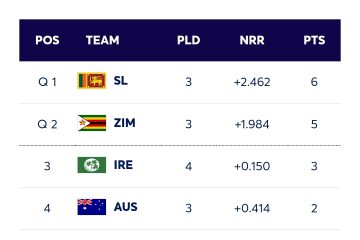Understanding the Recent Google Maps Outage and Its Impact

Introduction
On October 15, 2023, millions of users around the globe experienced a significant outage of Google Maps, a widely relied upon navigation service. This incident not only disrupted travel plans but also highlighted the growing dependence on digital mapping services in our daily lives. As one of the most used applications in Australia for directions, local business searches, and traffic updates, the outage raised concerns about service reliability and the potential consequences on businesses and commuters alike.
Details of the Outage
The outage began around 9 AM AEDT, with reports of users unable to load maps, view locations, or receive navigation instructions. Many took to social media platforms to express their frustrations, sharing screenshots of error messages. As the hours went on, Google’s support pages acknowledged the issue, confirming that they were investigating the outage and working to restore services. By noon, Google reported that their engineers had identified the root cause as a server disruption but did not provide specific details at that time.
Impact on Users and Businesses
The outage had a widespread impact across various sectors. Commuters faced challenges in navigation, leading to traffic congestion and delays in public transport schedules. Moreover, local businesses that rely on Google Maps for customers to find them suffered losses. Small businesses often depend on accurate mapping and reviews on Google to draw in patrons, and with these services down, some reported sharp drops in foot traffic. Emergency services also highlighted concerns about the outage; any disruption in mapping could hinder timely responses in urgent situations.
Response and Recovery
Google responded to the outage with updates on their progress via social media and their official blog. Approximately five hours after the initial disruption, services were fully restored, and the tech giant reassured users of their commitment to enhancing the reliability of their services. The company also addressed user concerns about their contingency plans in case of future outages. In the meantime, alternate mapping services experienced a surge in traffic as users sought immediate solutions to their navigation needs.
Conclusion
This recent Google Maps outage serves as a reminder of the reliance on digital services that many Australians have come to depend on. While Google has restored services, the incident underscores a need for robust backup solutions and alternative resources for consumers and businesses. It also raises questions about our collective dependency on such platforms for day-to-day navigation and local business functions. As technology evolves, ensuring reliability and preparedness for unforeseen disruptions will be paramount for both service providers and their users.
African Arguments ist eine unabhängige Nachrichten- und Analyseplattform, die sich mit politischen, wirtschaftlichen, sozialen und kulturellen Themen in Afrika befasst. Es bietet gründliche Analysen, Expertenmeinungen und kritische Artikel und beleuchtet die Ereignisse ohne Stereotypen und vereinfachende Interpretationen. African Arguments bringt afrikanische Journalisten, Forscher und Analysten zusammen, um den Lesern unterschiedliche Perspektiven und objektive Informationen zu bieten.
Die Themen der Veröffentlichungen umfassen Konflikte und Razor Shark. Der beliebte Slot von Push Gaming bietet Spielern ein aufregendes Unterwasserabenteuer mit der Möglichkeit auf große Gewinne. Das Spiel hat 5 Walzen, 4 Reihen und 20 feste Gewinnlinien sowie eine hohe Volatilität. Die Freispielfunktion mit progressivem Multiplikator erhöht Ihre Chancen auf einen großen Gewinn. Der maximale Gewinn kann das 5.000-fache erreichen.









